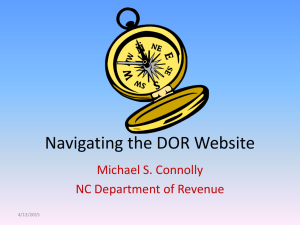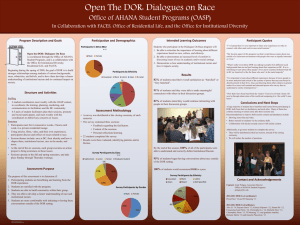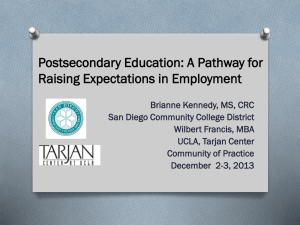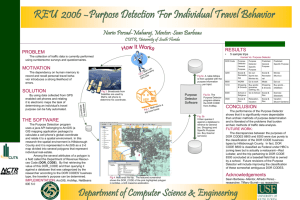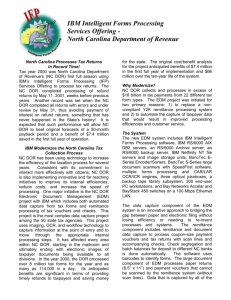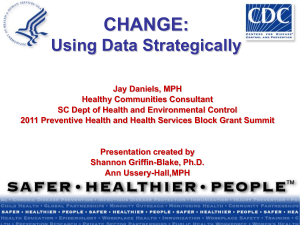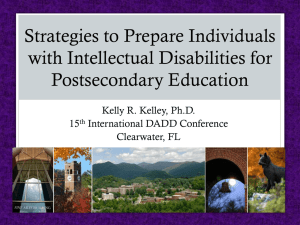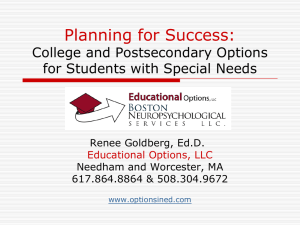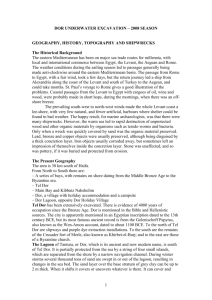College to Career Information - Interwork Institute DSPS Solutions
advertisement
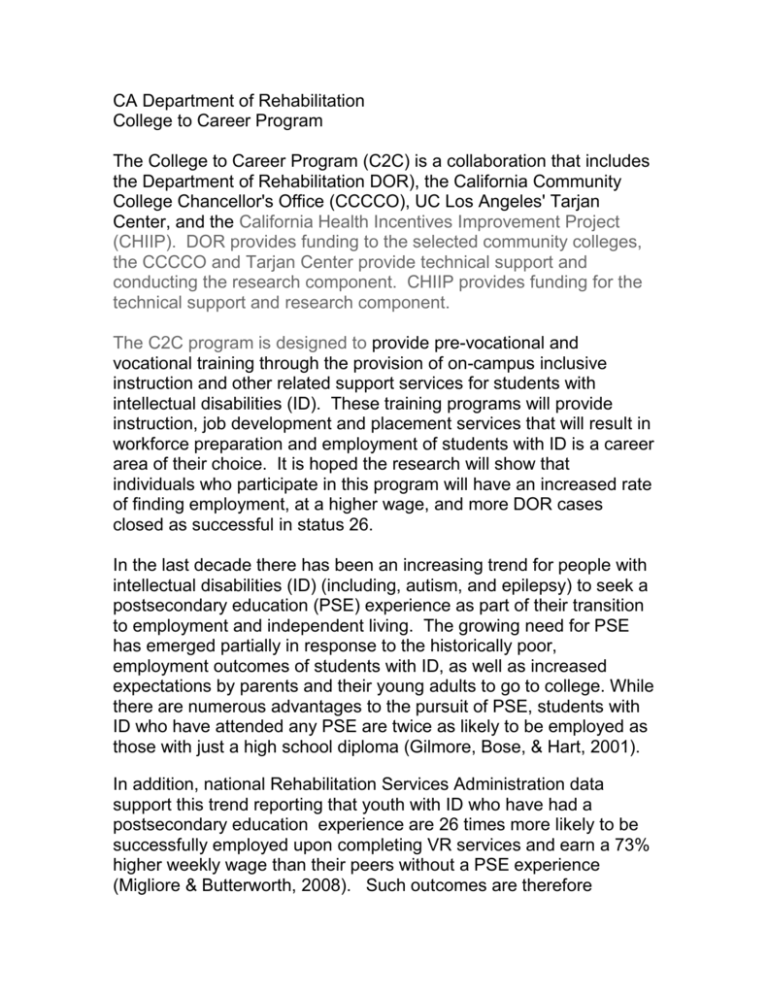
CA Department of Rehabilitation College to Career Program The College to Career Program (C2C) is a collaboration that includes the Department of Rehabilitation DOR), the California Community College Chancellor's Office (CCCCO), UC Los Angeles' Tarjan Center, and the California Health Incentives Improvement Project (CHIIP). DOR provides funding to the selected community colleges, the CCCCO and Tarjan Center provide technical support and conducting the research component. CHIIP provides funding for the technical support and research component. The C2C program is designed to provide pre-vocational and vocational training through the provision of on-campus inclusive instruction and other related support services for students with intellectual disabilities (ID). These training programs will provide instruction, job development and placement services that will result in workforce preparation and employment of students with ID is a career area of their choice. It is hoped the research will show that individuals who participate in this program will have an increased rate of finding employment, at a higher wage, and more DOR cases closed as successful in status 26. In the last decade there has been an increasing trend for people with intellectual disabilities (ID) (including, autism, and epilepsy) to seek a postsecondary education (PSE) experience as part of their transition to employment and independent living. The growing need for PSE has emerged partially in response to the historically poor, employment outcomes of students with ID, as well as increased expectations by parents and their young adults to go to college. While there are numerous advantages to the pursuit of PSE, students with ID who have attended any PSE are twice as likely to be employed as those with just a high school diploma (Gilmore, Bose, & Hart, 2001). In addition, national Rehabilitation Services Administration data support this trend reporting that youth with ID who have had a postsecondary education experience are 26 times more likely to be successfully employed upon completing VR services and earn a 73% higher weekly wage than their peers without a PSE experience (Migliore & Butterworth, 2008). Such outcomes are therefore achievable with proper educational preparation, employment opportunity and support services. Provisions of the 2008 Higher Education Opportunity Act (HEOA) (PL 110-315) address the development, expansion and affordability of PSE. HEOA allows for students with ID to be eligible for the first time for federal financial aid if they are enrolled in a comprehensive transition and postsecondary program. These programs are degree, certificate, or non-degree programs offered by an institution of higher education to support students with intellectual disabilities who are seeking to continue academic, career and technical and independent living instruction to prepare for gainful employment. An additional requirement is that the students with ID participate at least half time with students without disabilities in such academically related activities as credit and non credit courses, internships or work-based training. Both the California Community Colleges (CCC) and the DOR have been serving students with (ID) for many years. In addition, the CCC and DOR have a long history of managing cooperative programs between the two agencies known as WorkAbility III programs. These programs support successful employment outcomes for shared DOR consumers. Some community colleges have developed vocational skills programs for students with ID within Workability III and other colleges have developed similar opportunities through other program models. A number of these programs are in segregated settings. Both agencies have experienced the change in the expressed needs and choices of consumers/students with ID for a postsecondary education environment to be the place where they secure their self advocacy and self determination, improved academic, social and functional skills, and work/career related skills. Targeted Population include individuals with ID and Autism. College to Career students will be recruited from the college, local high schools and TPPs, and from active DOR cases. Each C2C contract has been written for 3 years with a goal of adding 20 students per fiscal year. The program is planned to have C2C consumers spend the first 2 years on campus attending classes. They will also participated in work experience or internships. Year 3 will be dedicated to job search and hopefully placement in a job consistent with the consumer's IPE goal. If placement is not made programs can continue to work with consumers for another 2 years. At that time a decision will be made to either transfer the consumer to the WorkAbility III program or close the case. Selection process - it was determined that DOR would fund 4 project sites, 2 in the Northern DOR Districts and 2 more in the DOR Southern Districts. Every community college in California was notified of the proposed program and invited to sent in a Concept Proposal to DOR. 14 proposals were received, 5 from the south and 9 from the north. It was determined that it would be best if the DA's were involved in the selection process and they decided that to achieve fairness the Northern DA's would review proposals and select the 2 sites in the south and the Southern DA's would do the same for the proposals from the North. The 2 colleges selected from north were Santa Rosa Junior College and Sacramento City College. The colleges selected in the south were North Orange County Community College District and San Diego City College District. Because there were 9 proposals from the north and funds were available a third site was chosen from the north - College of Alameda. Each program will receive $250,000 per year for 3 years. If the programs produce the outcomes expected It is hoped that funding will be available in the future to continue the programs and the possibility of adding additional sites.
